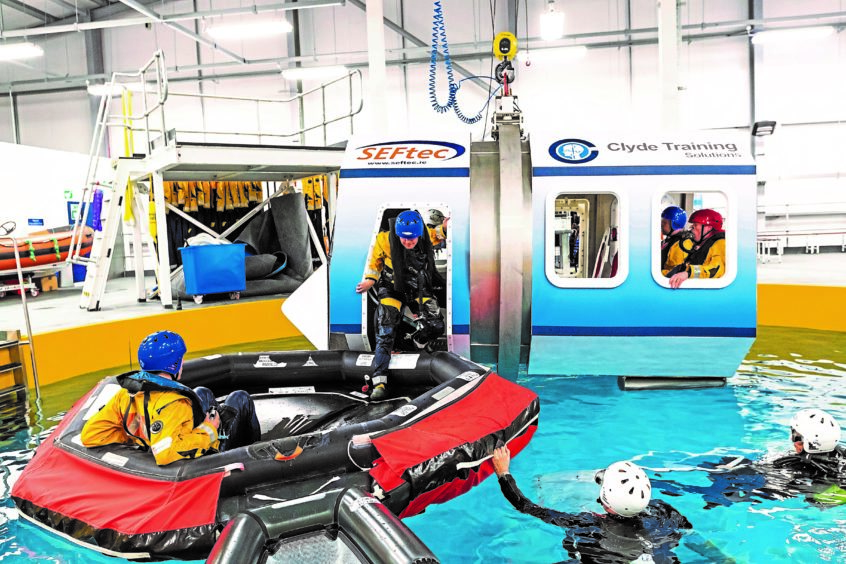
If you are still seeking indications of recovery in the offshore industry in 2019, then it may be worth observing developments by the River Clyde.
Clyde Training Solutions (CTS) – the first offshore training provider in Scotland located outwith Aberdeen – has seen rapid growth over the past two years, with the number of delegates passing through its Clydebank doors in 2019 alone set to exceed 13,000 by year-end.
Launched in 2016, with the downturn in full effect, CTS invested in the industry with its focus on the future.
Fifteen minutes from Glasgow Airport, the centre targeted both the central belt offshore workforce and a wider international clientele.
Maritime and renewable energy training courses are also offered at the centre, with the business the first in the UK to obtain MNTB Centre recognition, whilst holding approvals from OPITO (offshore), GWO (renewables), and MCA (marine).
Bespoke operational cargo and stability training for an oil major client’s floating production storage and offloading/floating storage unit (FPSO/FSU) fleet has illustrated a client-centric approach while leaning on the business’s existing marine expertise in tanker and marine technical training.
Delegate feedback has been positive as evidenced on the company’s social media platforms, such as Facebook.
Ahead of their attendance at SPE Offshore Europe, Gareth Mathias, CTS general manager, reflects on CTS’ first years in business.
He said: “Over the past two years we have been gaining a foothold in the sector with considerable effort placed on the quality of training and customer experience.
“It is fair to say that our rising training delegate numbers could be interpreted by some as another positive sign for the industry. Our footfall forecasting, based on an expectation of industry recovery, has been reasonably accurate so far.
“Outwith the obvious attraction of proximity for central-belt located offshore workers, we believe it is the quality of our training that sets us apart.
“Our instructors are drawn from the sectors our delegates work in, meaning there are common-thinking and relatable experiences.
“We aim to ensure our delegates leave confident and empowered that they can react in the correct way should a challenge to their safety occur.”
Remaining expected goals for 2019 include ongoing expansion of an already considerable course portfolio and the attainment of additional OPITO accreditations for helideck emergency response team leader (HERTL) and offshore emergency response team leader (OERTL).
Accreditation for helideck operations initial training (HOIT) was achieved earlier in the year.
Gareth added: “Our growing client database includes a TMS contract and collaborations with other training providers who are responding to their respective clients’ demands for a central-belt training option which cuts the costs of accommodation and/or transport accordingly.
“It is our view that collaboration between the industry’s training providers can only be a good thing.”
Recommended for you
